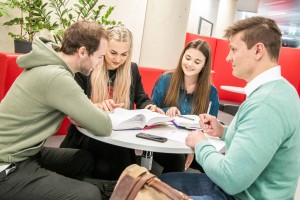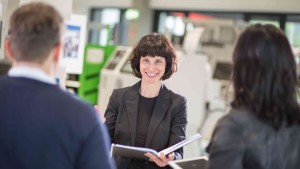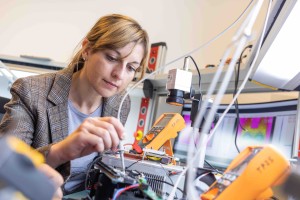International Summer School
Machine Learning and Optimization for Dependable Systems

This summer school provides lectures, tutorials, and workshops devoted to the latest state of the art of machine learning and optimization techniques to enable dependable systems, which will be delivered by international experts. The summer school offers a unique opportunity to get to know other researchers working in the field and establish a network for future collaborations.
Welcome to the summer school “Machine Learning and Optimization for Dependable Systems”, an educational event to illuminate hot topics in machine learning and optimization techniques for engineering dependable systems. We offer a comprehensive program featuring lectures, tutorials, and workshops focused on exploring the forefront of technological advancements in the field. Delivered by distinguished international experts, our sessions offer in-depth insights into cutting-edge research and applications. This summer school is not just about learning; it’s an opportunity to connect with fellow international researchers, laying the groundwork for future collaborations and innovations.
Our program is designed for ambitions minds at various stages of their academic journey, from Master’s students to PhD candidates (We will deep dive into topics like AI for systems and networks, tiny machine learning, and optimization tools, all aimed at equipping you with the knowledge and skills to excel in the dynamic field of AI-based dependable systems). Immerse yourself in a vibrant environment where education meets inspiration and become part of a community pushing the boundaries of machine learning and optimization. Enroll now for a transformative experience that will shape your future career and set you apart in the ever-evolving tech landscape.
Goals and Audience
The primary aim of our summer school is to equip attendees with both a foundational understanding and advanced knowledge of machine learning techniques, and to demonstrate their critical role in the development of dependable smart systems. Furthermore, we will introduce versatile optimization methods and tools with broad applications to ensure system’s resource-efficiency and reliability. Beyond academic learning objectives, fostering a vibrant community is a core goal. To facilitate this, a social event will be organized, encouraging networking and the exchange of ideas in a relaxed setting. Attendees will reside on-site at a beautiful castle that has been converted into a modern conference center. The program is ideal for those who aspire to push the boundaries of technology and innovation in their research and future career, providing them with the tools, knowledge, and connections to make a significant impact in the field.
Lectures and Topics
Machine Learning for Wireless (Sensor) Networks
Anna Förster, University Bremen
Short introduction: Anna Förster obtained her MSc degree in computer science and aerospace engineering from the Free University of Berlin, Germany, in 2004 and her PhD degree in self-organising sensor networks from the University of Lugano, Switzerland, in 2009. She also worked as a junior business consultant for McKinsey&Company, Berlin, between 2004 and 2005. From 2010 to 2014, she was a researcher and lecturer at SUPSI (the University of Applied Sciences of Southern Switzerland). Since 2015, she leads the Sustainable Communication Networks group at the University of Bremen. Currently, she serves as Director of the Bremen Spatial Cognition Center (BSCC) and as a board member of the Center for Computing Technology (TZI). Her main research interests lie in the domain of the Internet of Things. She is mostly interested in self-awareness and resilience, user friendliness and user adoption, self-organisation, and machine learning for IoT applications. All considered scenarios and applications serve the Sustainable Development Goals and contribute to a more sustainable and peaceful future.
Machine Learning for Embedded Systems
Michele Magno, ETH Zürich
Short introduction: He is an experienced Senior Researcher with a demonstrated history of working in the higher education industry. He is professional skilled in Embedded systems, energy harvesting, energy efficiente communication, video processing, renewable energy, image processing, power management, IoT and wearable devices, and Computer Vision.
Tiny ML: the perfect storm for innovation in ultra-low-power Embedded System design
Boris Murmann, University of Hawai’I
Short Introduction: Boris Murmann is a Professor of Electrical & Computer Engineering at the University of Hawaiʻi, Mānoa. From 2004-2023 he served as a Professor of Electrical Engineering at Stanford University. From 1994 to 1997, he was with Neutron Microelectronics, Hanau, Germany, where he developed low-power and smart-power ASICs. Since 2004, he has worked as a consultant with numerous Silicon Valley companies. Dr. Murmann’s research interests are in the area of mixed-signal integrated circuit design, including sensor interfaces, A/D and D/A conversion, high-speed communication links, embedded machine learning (tinyML) as well as open-source chip design. He is a fellow of the IEEE and currently chairs the IEEE SSCS Technical Committee on the Open-Source Ecosystem.
Introduction to Integer linear programming
Andrea Pacifici, TOR Vergata Roma
Short Introduction: His fields of activity is Operations research and his research is mainly concerned with combinatorial algorithms with applications to scheduling, logistics, manufacturing and transportation systems. His work includes the design and analysis of decision models for resource allocation, computational complexity characterisation, design of exact and approximate algorithms for multi-agent and nonlinear combinatorial optimization problems; design and implementation of simulation models for control policies evaluation in complex systems.
Foundations of Efficient Machine Learning
Olga Saukh, TU Graz / CSH Vienna
Olga Saukh associate professor and group leader of the Embedded Learning and Sensing Systems group at TU Graz, Institute of Technical Informatics (ITI) and Complexity Science Hub Vienna (CSH). She holds a habilitation degree in Embedded Systems from TU Graz since 2020. Sh did her postdoctoral training at ETH Zurich in 2010-2016 working in the group headed by Prof. Lothar Thiele in the Computer Engineering and Networks Laboratory. Her research focuses on efficient machine learning and engineering AI-based systems, covering a range of topics on the intersection of deep learning and embedded systems. She is interested in both theoretical beauty of algorithm design and model optimizations, and in solving real-world challenges. She serves on program committees of international conferences. Her publications have been accepted at top venues in machine learning and cyber-physical systems, including ICLR, IEEE/ACM IPSN and ACM ToSN.
The lecturers
Venue
The summer school will be hosted at Retzhof Castle located approximately 35 km from Graz in a the picturesque, hilly wine country known as "Styrian Tuscany." Originally built in the 15th century, Retzhof Castle has been transformed into a contemporary conference center. It boasts guest rooms, seminar spaces, a restaurant and cafe, as well as on-site recreational facilities. Participants will be accommodated in the castle's guest rooms, offering a unique living experience. The enchanting surroundings of "Styrian Tuscany" are perfect for exploratory hikes through the vineyards. Here, local vintners showcase their wines in traditional wine taverns called "Buschenschanken," often situated in scenic locations. This setting not only provides a tranquil backdrop for learning but also offers a taste of local culture and hospitality.
Administrative issues
The summer school is organized by FH JOANNEUM and TU Graz within the DENISE doctoral school. It will take place in the wonderful south of Styria, at the Retzhof. Participation is open to all qualified applicants, but the number of participants is limited to a maximum of 30. If we receive more applications, we will select participants based on their work area and background, geographic distribution and date of registration. The registration fee of EUR 650,-- (680,--) includes accommodation at Retzhof from Monday to Wednesday and all meals (drinks excluded) and has to be paid after our letter of acceptance. Participants are expected to arrive in the afternoon or evening of Sunday, July 7th. The school will begin on Monday morning and end before lunch on Wednesday July 10th. Travel information can be found at the Retzhof homepage. Travel arrangements have to be made and paid by participants individually.
Important dates:
Registration deadline: 15.05.2024
Notification: 31.05.2024









